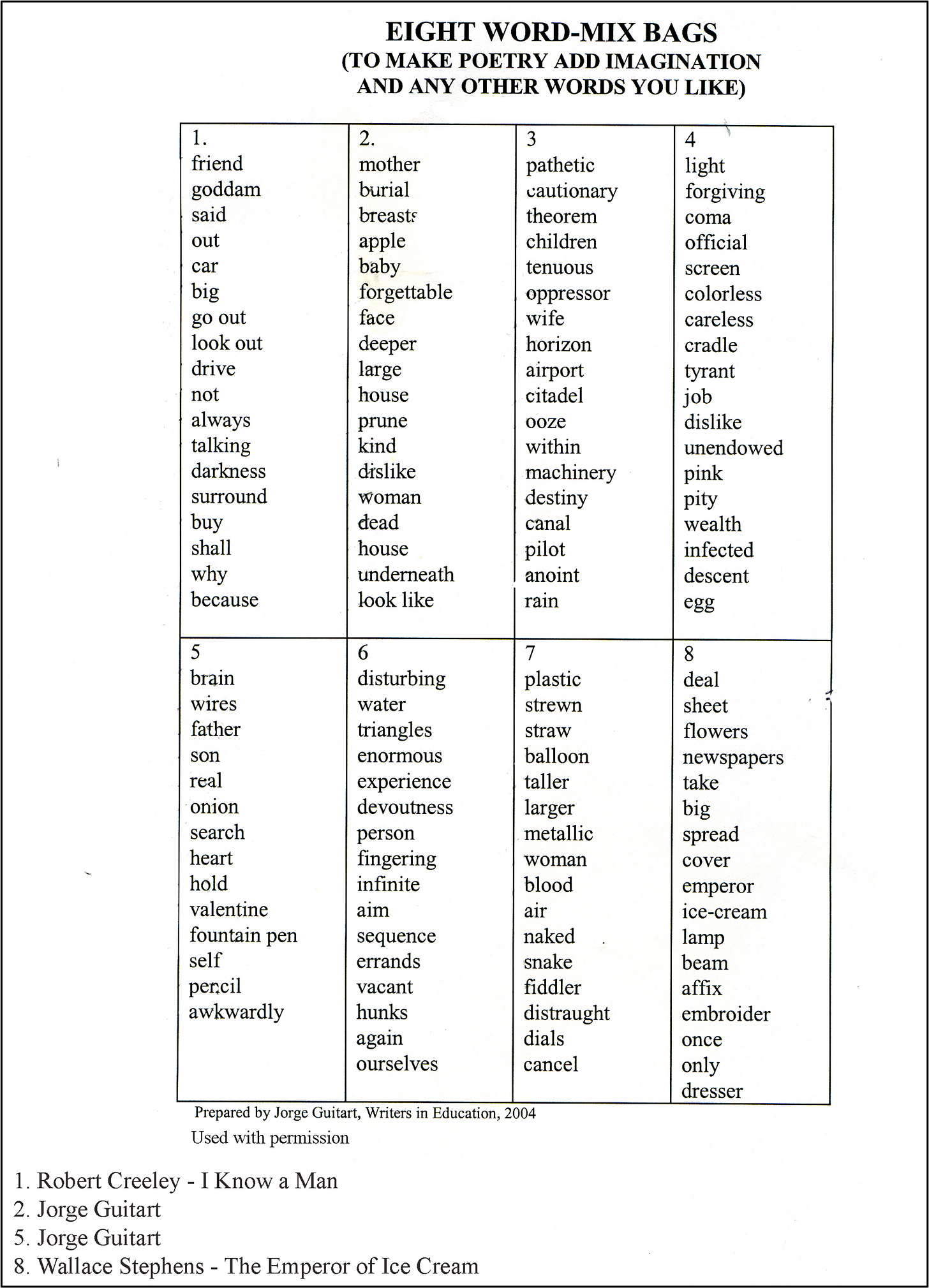Meeting the Challenge of “Can’t Write” with Ten Minute Poems
A Guest Post by Martha Deed
Can’t write
Can’t think
Disappearing words
The frustration of not being able to write can make the pain even worse. Whether from stroke, Long Covid or writer’s block, this existential problem may be fixable. Maybe actual published poems could come out of this problem of access to a brain once fertile with ideas that revision could mold into a decent line. But not now.
Can’t revise
Maybe it is “only” executive function, the ability to generate ideas, that is lacking. Maybe if a trigger is presented, the poet’s mind can do the rest.
This author had published dozens of poems prior to suffering a small stroke in 2003 – smack in her language center. She could walk and hear and speak, but she had lost her sense of direction both creatively and literally. When she observed a Chickadee singing in the pine tree in front of her, the song came from behind her.
She could construct concrete minimalist poetry, beginning with images of the stroke with a flower punched through it.
She wanted words. She couldn’t find words.
Was she done? Finished?
Turns out, she could make use of code poems, poems written with constraints. Jorge Guitart, poet and linguist, offered a series of workshops at Buffalo Literary Center in 2004, and the poet attended.
She wrote ten minute poems from word boxes, words from clichés, words counted using random numbers from pages of her favorite books, the newspaper.
More than a dozen of the poems she wrote during Guitart’s workshop were published in Dudley Review, Carnelian, The Other Voices, Dirt, Isola della poesia, Big Bridge, and New Verse News from 2004-2008.
Worksheets designed to generate a variety of poems are below.
§
An example of a poem written from a list of clichés:
Primary Day
In the belly of the whale
there are no flashlights
and on a starry night
no appendectomies
your have-a-happy-day surmise
is worth less than a slippery slope
of cream cheese and grape jelly on rye
which is why I love to go fishing in January
casting bread upon frozen waters
and waiting for whales on Seneca Lake
on Primary Day.
(Published in New Verse News, 2008)
§
Eventually, her ability to write poems generated from her own imagination resumed.
And then, like so many people, Covid robbed her of her self-generated poems once again.
She tried randomized dice throws using Mark Danowsky’s curated quotations from September 2024. Using a series of constraints she created a worksheet and a ten minute poem. Random dice throws can be found here.
Method: Random dice roll plus 5th word in quote. At each roll of the dice, count from the previous quote. 12 words
grow
succeed
distinctly
feelings
peace
destroy
most
lifetime
think
grow
succeed
stupid
§
Long Covid
These are times to grow flowers and fruit
a time to succeed in the garden
when the poet’s mind is distinctly bereft
of the feelings that feed one’s imagination
but instead finds peace in fretful slumber
or in digging out weeds which would otherwise
destroy most memories – which like heirloom seeds
and wise words she has collected over her lifetime.
Now she depends upon mnemonic devices to think
through a foggy brain to grow poems that may succeed
her. As for the tomatoes and green peppers in her small weedy garden,
the hand that feeds and waters them – smart or stupid – matters little
to the plants. They grow, they ripen, they revive the sleepy poet.
Finally, the blocked poet could make use of word boxes like these constructed by Guitart for his workshop and used with permission.
Ten minute poem written from Box #5 (worksheet below):
Artistic Ambition
If the son is wired to his father’s brain
like a leaky fountain pen
then in his search for love
his real self may hold
his pencil awkwardly
and draw a hearty onion
for a valentine
(Published in Dirt, 2005)
§
It’s possible to break through blocks to writing poetry in many ways using constraints built from words on the page, words on the web. So, no matter how blocked and fatigued one is, whether through illness or stress or the ordinary ups and downs of a busy life, a little digging for source generators and ten minutes might lead to a poem that amuses and may open those clogged imagination channels to freer work at a later stage of recovery.
The travel back from a dulled imagination is scary but using techniques such as those mentioned here and others the poet may invent can ease the journey. Make strange and new texts from constraints. Be prepared for surprises.
§
About The Author
Martha Deed lives on the Erie Canal in North Tonawanda, NY. Her poems have appeared in One Art, New Verse News, BlazeVox Journal, Earth’s Daughters, Autumn Sky Poetry Daily, BlazeVox Journal, Unlikely stories, and dozens of other online and print journals. She is the author of three poetry collections from FootHills Publishing, including her most recent, Haunted By Martha (July, 2023).






